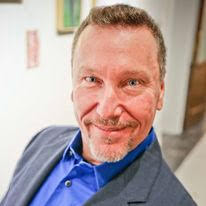Wealthy capitalists keep you distracted with identity politics
Published 7:33 am Saturday, January 28, 2017
By BRIAN COONEY
Contributing columnist
“My administration is the only thing between you and the pitchforks.”
Trending
— Pres. Obama to bank CEOs
March 27, 2009
The Democratic Party in the Obama era thought it could emphasize identity politics (the rights and status of minority communities) while paying little attention to class politics (economic inequality). This was the core of Hillary Clinton’s campaign. It cost her the 2016 election and left her party prostrate.
Racist (or sexist or homophobic) laws and customs are social evils for the same reason as policies favoring the wealthy and creating an economic underclass. They violate the commitment to equal rights and equal dignity that is essential to a healthy democracy. That’s why identity politics without class politics is a contradiction.
Equality in the economic sphere does not, of course, mean equality of wealth and income. If a society were to level everyone in that way, incentives for the more talented and creative members of society would be minimized and everyone would be worse off. But in a democracy, economic inequality, like economic growth, is good only insofar as it makes EVERYONE better off. That is clearly not what happens in the U.S.
When Barack Obama became the first black president of a nation with a long history of slavery followed by oppressive segregation, most Americans saw this as momentous and an indication of great things to come — the dawning of “yes we can!” It called to mind the glorious day in 1990 when Nelson Mandela, fist upraised, walked free from Victor Verster prison and went on to become President of South Africa in 1994.
Trending
But the bright post-racial futures suggested by the rise to power of Mandela and Obama didn’t happen. After visiting the World Economic Forum (WEF) at Davos in 1992, Mandela reluctantly concluded that his country would lack needed investment capital unless he and his African National Congress dropped their plans for a radical redistribution of economic power and wealth. The ANC put down their ‘pitchforks’ and cut a deal with the capitalist elite.
Anna Orthofer of Stellenbosch University has found that a mostly white “10 percent of the population own at least 90-95 percent of all wealth.” According to Irvin Jim, leader of the National Union of Metalworkers of South Africa, “There is still a war between capital and labor. Nothing has changed. During the struggle, workers fought for a living wage, but the apartheid wage gap is still there” (New York Times, Dec. 9, 2013).
The war American capitalists launched against labor in 1980 has continued unchecked through the Obama administration. The Economic Policy Institute found that from 1979 to 2014, worker productivity rose 62.7 percent, but workers’ median wages were stagnant. In 2014, the median wages of white men were 3.1 percent lower than in 1979, and those of black men were down by 7.2 percent.
The mortgage crisis and Great Recession of 2008-09 stripped the black community of half its wealth. Yet the first black President chose not to prosecute any of the financial executives whose fraudulent activity was a main cause of the crisis.
The increases in national income from economic growth since 1980 went mostly to the upper strata of society. In Obama’s first term, 95 percent of income gains went to the top 1 percent (Emmanuel Saez, “Striking it Richer”). According to the Pew Charitable Trusts, the American middle class is shrinking, as well as falling behind in income. Most American families are financially insecure. Over 55 percent don’t have enough savings to replace more than one month of income in an emergency. Also, “just under half of families are ‘income-constrained,’ reporting household spending greater than or equal to their income; and eight percent are ‘debt-challenged,’ with payments equal to 41 percent or more of their gross monthly income. Fully 70 percent of households face at least one of these problems, with many confronting two or even all three.”
Trump won the presidency by channeling white identity politics — the nemesis of Democratic identity politics. He expanded the hardcore anti-government base of today’s GOP by adding non-Hispanic ‘whites’ made anxious by economic insecurity and stagnant wages, and by the prospect of losing their numerical majority in an increasingly non-white nation.
The identity politics of both parties is a distraction and a scam. It tries to divide Americans harmed by run-away economic inequality into hostile camps who are so preoccupied with each other that they fail to see their common oppressor: a wealthy capitalist elite that has captured their government by funding the elections of politicians in both parties.
Capitalism is the dogma that as long as private individuals are making profits and the economy is growing, society benefits. The distribution of capital (wealth) should be left in the hands of those (such as Trump?) with a proven ability to make profit. The only appropriate role of government is to promote capital growth by providing infrastructure and defending property rights.
As countries like Denmark and Norway have shown, we don’t need to accept this dogma in order to have a good business climate and thriving markets.
Capitalism is an international ideology whose adherents regularly hold summit meetings. The world’s business elite gathered on Jan. 17 at the annual World Economic Forum in Davos, Switzerland. There they were warned once again by Oxfam about the stunning level of economic inequality in a world dominated by mega-corporations. Just eight multibillionaires have as much wealth as 50 percent of the world’s population. Five of these are Americans. The richest 1 percent own more than the remaining 99 percent of humanity. Don’t expect the Davos participants to do anything about this.
This is the world that capitalism has wrought. It is unsustainable. We can only hope that this toxic ideology can be overcome without social collapse.






